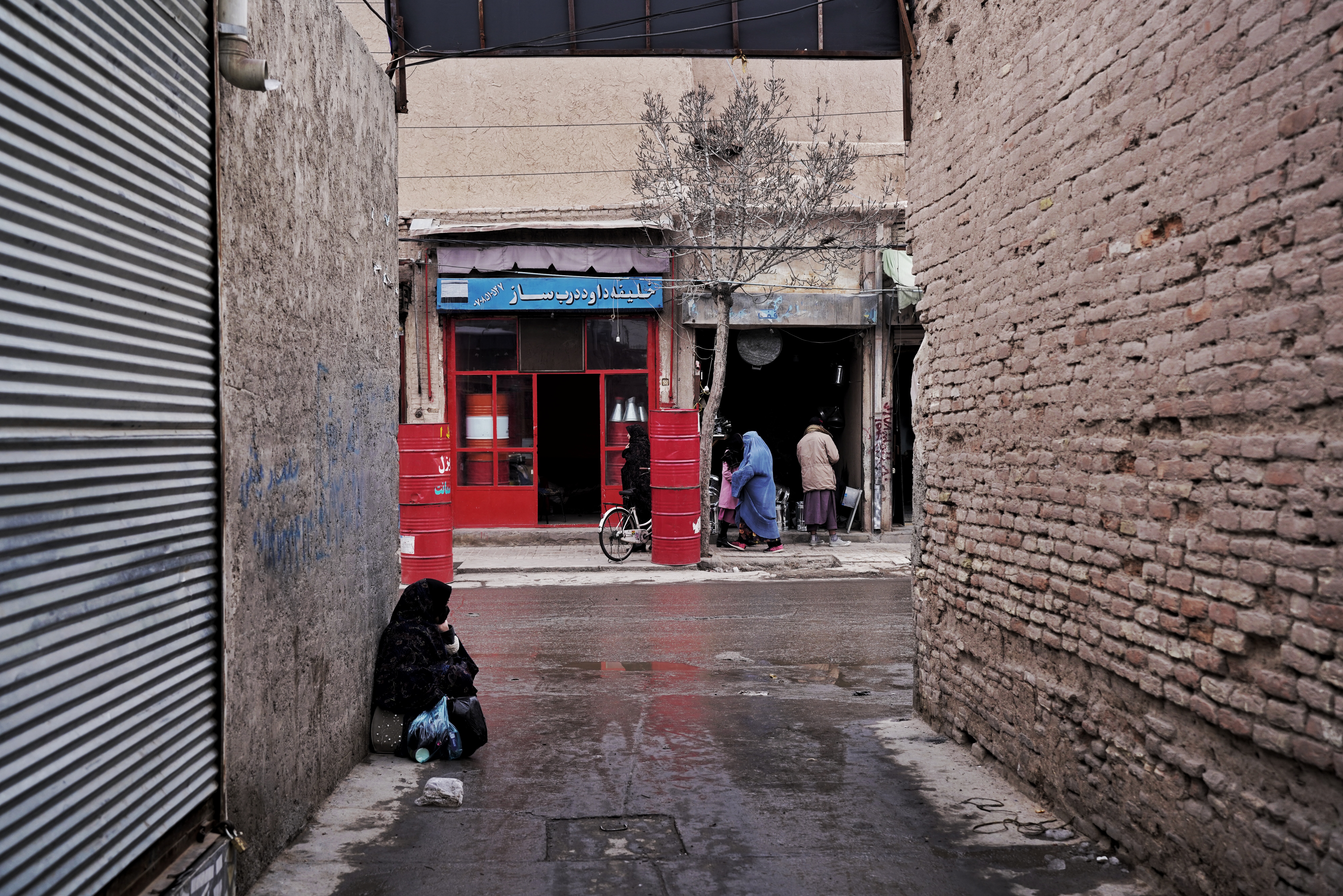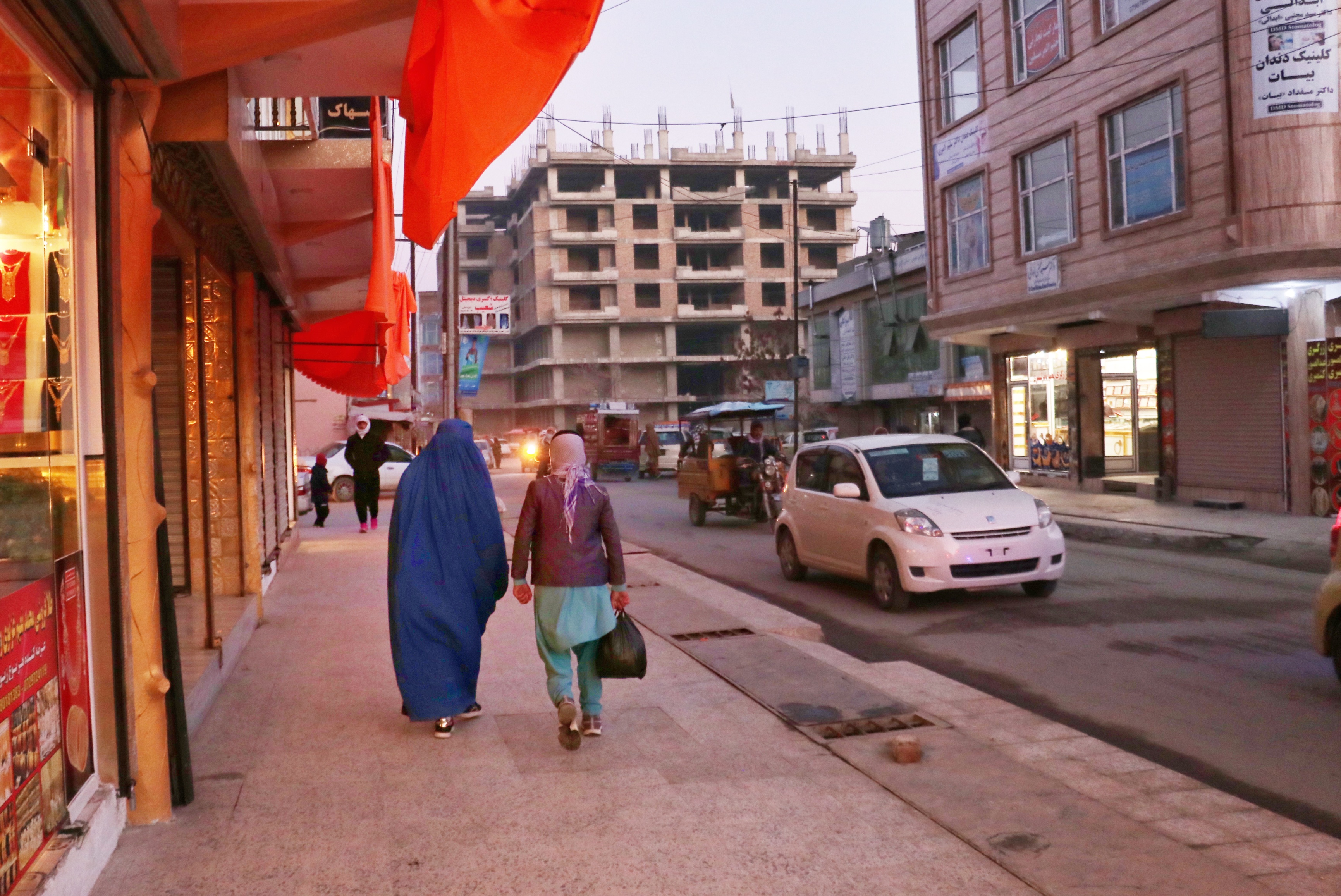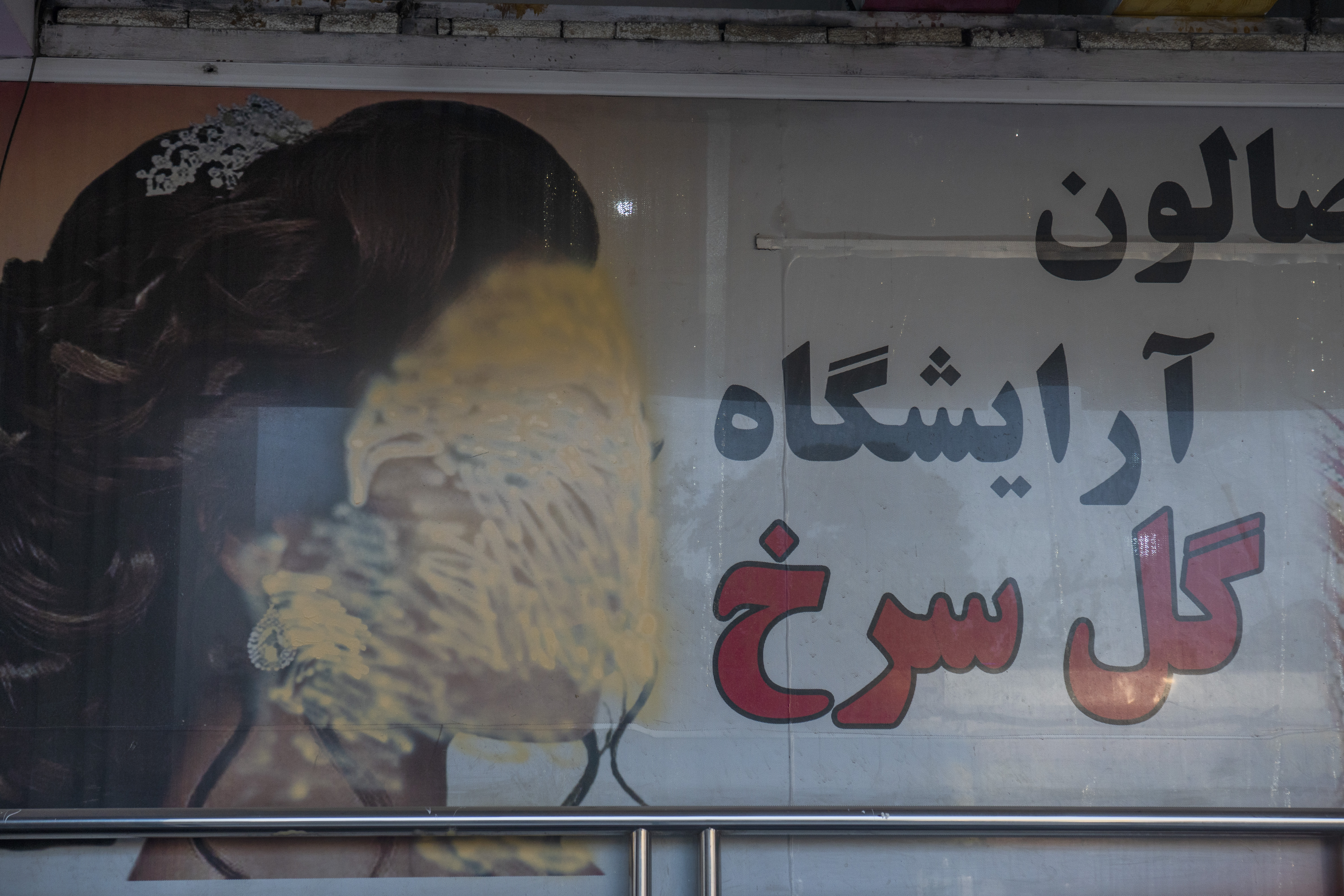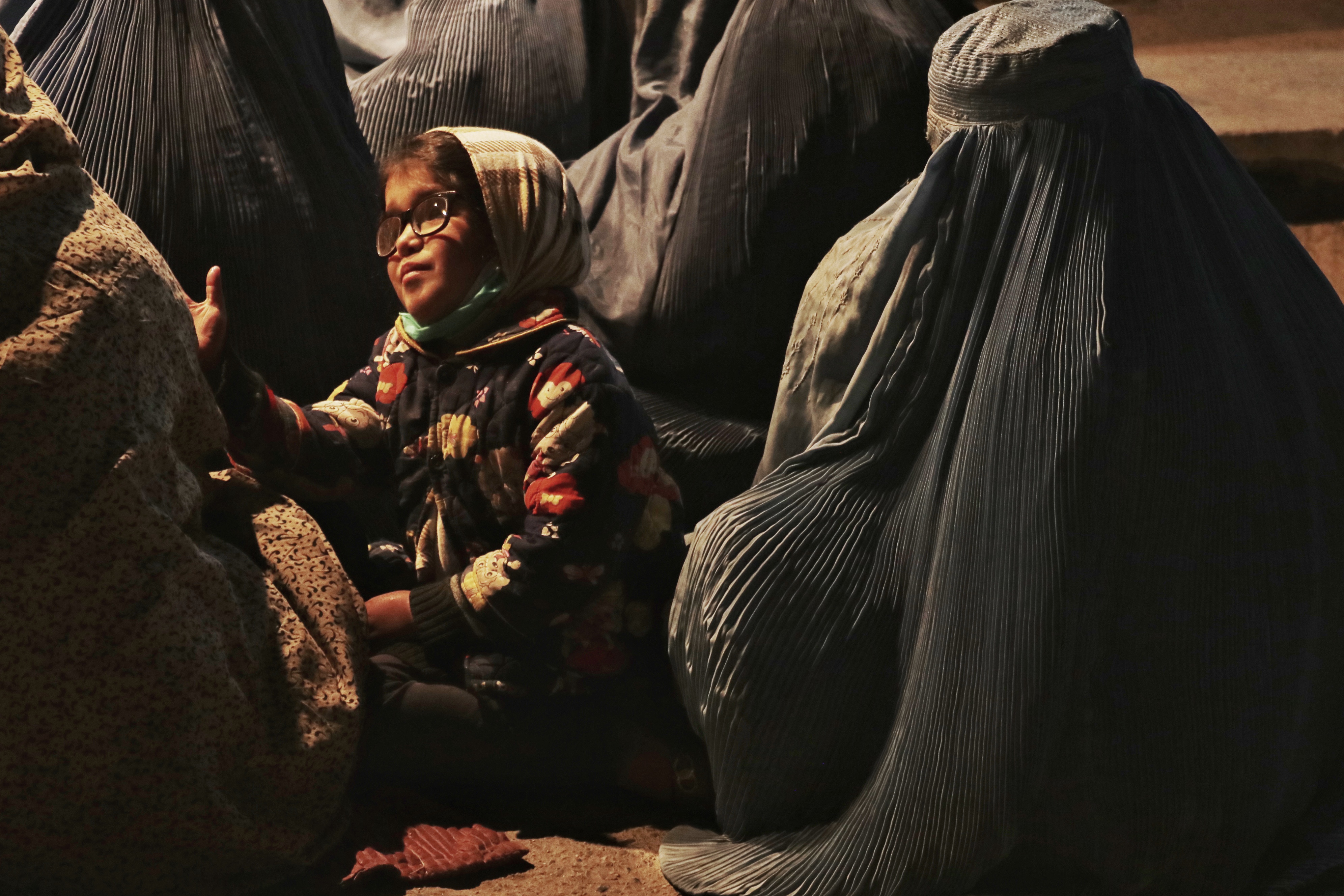On December 24, the Taliban’s Ministry of Economy issued a letter stating that women in Afghanistan could no longer work for national and international Non-Governmental Organisations (NGOs).
The letter mentioned that the ministry had recently received complaints regarding female NGO workers not adhering to the Islamic hijab and other regulations imposed by the group, and warned that the licenses of organisations that fail to comply with the edict will be cancelled. Despite global condemnation, the Taliban have defended the decision and claim that the ban is in accordance with Islamic laws.
Aid agencies have stressed that the ban will have consequences for all Afghans, but will have disproportionate impacts on the country’s female population, as some services cannot be delivered without female staff. Following the ban, UN Women estimated that 11.6 million women and girls will be left without vital humanitarian assistance.
Afghan Witness (AW) spoke to a number of women NGO workers about how the ban has affected their lives and work, and the measures they have taken to keep their organisations operating.
All of the women’s names have been changed for security reasons.
Losing work for the second time
 The ban on female NGO workers marks the second time Seema has lost work since the Taliban’s takeover.
The ban on female NGO workers marks the second time Seema has lost work since the Taliban’s takeover.
Shortly after the Taliban announced the ban, several big aid agencies, including the UN, partially or fully suspended their activities. The Norwegian Refugee Council, the International Rescue Committee, Islamic Relief, Care, Christian Aid and World Vision also announced the suspension of aid in the country in the initial aftermath of the ban.
Nearly a month later, several international groups said they were resuming some operations, after receiving assurances from Taliban officials that female workers will be allowed to carry out their duties in areas such as health.
However, the situation remains uncertain for many women-led national organisations and their female employees. According to research by UN Women, 94 per cent of surveyed national organisations fully or partially suspended their activities in the immediate aftermath of the ban.
For Seema, the ban on female NGO workers marked the second time she lost her job since the Taliban’s return to power.
She previously worked for a World Bank-funded project in Kabul but lost her job soon after the group’s takeover in August 2021. Sixteen months later, Seema finally succeeded in securing a position at a local NGO in Kabul.
However, the day before she was due to start her new role, the employer informed her that her contract would be terminated.
“After losing my job for the second time in late December, I relived the trauma of the return of the Taliban,” Seema tells AW.
She explains that the organisation focused solely on women, and after the Taliban’s announcement, they could no longer operate.
“The organisation did not even accept my offer of working for them online, saying they were unable to help.”
Finding ways to cope
 Some NGOs have allowed women to work from home – but they face barriers such as power cuts and poor internet connection.
Some NGOs have allowed women to work from home – but they face barriers such as power cuts and poor internet connection.
Some women-focused and women-led national NGOs have been able to continue their work but have made several adaptations.
One organisation told AW they now operate with male staff on site and women working from home. The organisation cannot be named due to security concerns.
Nadia, a senior employee at the organisation, explains that the situation has been tough, but says they are committed to retaining their female staff and paying their salaries for as long as possible.
“The majority of our staff are women, and nobody is coming to the office. The first week, we had to close everything down and did not do anything at all,” Nadia says.
“We slowly started working from home, but it has not been easy.”
Nadia explains that female staff face multiple obstacles when it comes to working from home. Afghanistan suffers from frequent power cuts, low-quality internet and poor accessibility, but on top of this, cultural norms require women to juggle working from home with being a housewife.
According to Nadia, the organisation has managed to operate, but the efficiency of its work has been undermined.
“We are trying to figure out different ways [to manage],” she explains.
“For example, we provided all our female staff with facilities such as power banks, solar electricity tools and printers in their homes.”
Digging into pockets
While Nadia’s organisation has been able to uphold its operations, Shamim, the president of another women-focused organisation, is relying on her personal savings to save her NGO from total collapse.
Shamim has run the organisation for over a decade in Kabul, with her work focusing on women and children, but says the organisation’s contracts with respective donors have been terminated since the ban.
“Organisations have been suffering from the Taliban’s ban but also the lack of cooperation from donors,” Shamim reveals.
“Donors are no longer interested in funding the organisations and have suspended their grant contracts.”
Despite changes to their funding, Shamim says she has not closed down operations completely and has just about managed to keep the office open, though the team now focus on advocacy work that can be done remotely.
“I have so far spent from my savings – which are almost running out,” she says.
“But we have no other choice and have to continue – otherwise my colleagues will lose their motivation and hope.”
Women pushed to back benches, or excluded altogether
 In order to survive, some organisations are now trying to hire men as their directors, but the president of one NGO says women “face the threat of being wiped out altogether.”
In order to survive, some organisations are now trying to hire men as their directors, but the president of one NGO says women “face the threat of being wiped out altogether.”
Some women-led organisations are hopeful that with the new year beginning in late March, the Taliban might change their minds. In the meantime, they are doing everything they can to keep their doors open – even if that means stepping back.
Female staff members explain to AW that they have had to compromise their mandates by replacing women in leadership positions with men – a trend they say started with the Taliban’s takeover but is now being exacerbated.
“Post August 2021, we had to reduce our female employees as working with an all-female staff was not easy,” Nadia tells AW.
“We initially had powerful women as our deputy director and programme manager, but now our director is a man, and so is our programme manager.”
“It is a lot of hassle to get approval from the [Taliban-run] Ministry of Economy if you have a female director,” she adds.
According to UN Women, the December 24 ban “cuts women out of the last remaining sector where they were prominent, highly visible and could continue to hold leadership roles.”
Nadia says that the organisation’s provincial project managers are still women who are working from home, though she is fearful that they will soon be barred from leadership posts, too.
“This has been the situation for women now that they have to take the back seat,” Nadia adds.
With women pushed out of senior roles, Shamim is concerned about the shrinking space for women in Afghan society.
“It is a very difficult situation now – organisations are obliged to hire men as directors in order to avoid total collapse, and women are under immense pressure to keep their presence in the public sphere alive, as they constantly face the threat of being wiped out altogether.”
The ban on women NGO workers follows a string of other restrictions on women and girls in Afghanistan – in December, the Taliban banned female students from university, and prior to that, announced restrictions on women’s access to public spaces such as parks, gyms and female public baths.
Both Nadia and Shamim mention “rumours” of the Taliban reversing the ban on women NGO workers in the near future, but suspect that any return to work will be accompanied by new regulations around dressing and gender segregation.
“There are rumours that they might ask us to follow a dress code or to have separate offices for men and women employees or separate floors – but these are just rumours,” says Nadia.
“I am not sure if they will change, given that girls are still not allowed to go back to schools after one and half years – so let’s see.”
Hope and despair
 Humanitarian organisations have raised concerns over the consequences of the ban for those in need of vital aid.
Humanitarian organisations have raised concerns over the consequences of the ban for those in need of vital aid.
OHCHR describes the ban on women NGO workers as a “double blow”, as it will have repercussions for the whole country. Without female humanitarian workers, it says Afghanistan’s population will have limited access to vital services relating to food, healthcare, education, child protection, and gender-responsive legal aid.
Aid organisations have also pointed out that widowed or single women are particularly vulnerable, as they may not have a mahram or male guardian to collect aid from the male workers that have replaced female employees.
Women who have lost their jobs as a result of the ban may also find themselves at risk of poverty. According to UN Women, 84 per cent of 127 organisations surveyed say that if the ban remains in place, they will need to discharge their female employees as they will be unable to afford to pay them.
The stress of the situation is taking its toll emotionally on Seema, who says she sees no future for herself in Afghanistan anymore.
“I have been suffering from depression – there is no hope since we do not see any improvements and the situation is worsening daily,” Seema says, her voice trembling.
“Now I mostly think about leaving Afghanistan.”
Despite the uncertainty, Shamim is working around the clock with her female colleagues to keep them motivated, although she acknowledges that the situation has been hard on women and their families – both economically and psychologically.
“My colleagues were getting worried and were losing hope, but I told them that despite having no projects any longer, we’ll keep the office open and will continue our advocacy work.”
Shamim says that she and her colleagues are working on an event and a documentary for International Women’s Day.
“I went through an operation yesterday, but I resumed my work today since we have limited time left and we have to work.”


